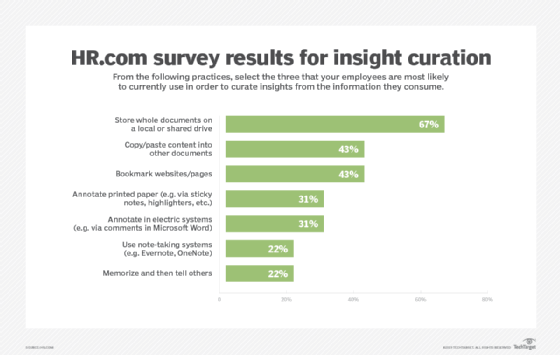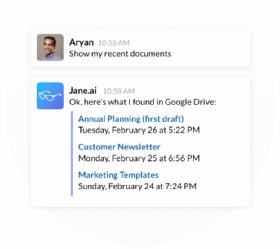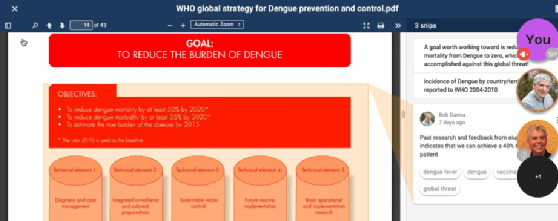
Sergey Nivens - Fotolia
Manage information overload with AI, insight curation tools
With information increasingly spread across several sources, knowledge workers often struggle to find what they need quickly. Tools like Jane.ai and Pandexio can help.
Pundits have long cited information overload as a culprit of productivity issues, especially in industries that depend on knowledge and knowledge-sharing in their daily operations. IDC predicted that there will be 175 zettabytes of data stored on computers, with about half of it in the cloud by 2025. Depending on how you look at it, information explosions have gotten better or worse. By any reckoning, that is lot of data to manage and to make sense of.
Gone are the days of taking a yellow highlighter and coloring meaningful sections in a textbook or your college notes to distill what was meaningful. Now, according to a study by Pandexio Inc. and HR.com, dumping whole documents onto one's computer is the most prevalent way knowledge workers are attempting to manage information overload, but it is highly inefficient.
The issue here for knowledge workers -- there are 60 million in the United States -- is culling and extracting from all the data we have at our fingertips. Whether is it on the web accessed by Google or on local hard drives, getting to the kernel of why we kept that document in the first place is the time-consuming task. The yellow highlighter isn't an efficient way to manage information overload in the digital age.
How much time employees spend searching for information varies depending on the source. Employees spend one day per work week searching for information necessary to do their jobs successfully, according to Interact. And IDC data shows that knowledge workers spend 2.5 hours each day looking for information.

In general, there are a limited number of facts -- often statistics -- that a knowledge worker wants to keep instant access to in, say, a given research report. The worker may want to share that fact or keep it for him or herself for later use. Document management resources such as Alfresco and Xenit are indeed useful, but culling them for the nuggets you want can still be hard. In theory, tools like Jane.ai, which can mine internal documents and present answers via a chatbot, might apply. It can also search documents for the statistic needed in the same way it currently delivers HR or customer relationship management answers to queries like "How many vacation days do I have left?" or "What was I last working on?"

Today's knowledge workers can use technology such as Pandexio's to help manage information overload. With Pandexio, employees can highlight sections of a document and share them with colleagues who might be interested or want to use the information in their work. The message also includes an icon allowing access to the entire original document. It creates digitally accessible objects that the knowledge worker found interesting. Whether the employee wants to share the insight or keep it for fast, easy reference later, the software offers the ability to quickly find the highlighted fact again. The tool supports collaboration, which can improve employee productivity.
In the future, accessing needed facts may be as simple as an Alexa at work that can answer or retrieve the saved factoid from a voice request, such as "Alexa, what is the average corporate cost to replace a chief cybersecurity officer in the financial services industry?" or "Which country has the greatest number of technically-skilled professionals at the lowest salary per year?" These questions aren't very hard in and of themselves, but they may be the type that an employee needs to be able to access from a larger document quickly, without rereading the entire thing or redoing a web search.

In the 1950s TV show Dragnet, Sergeant Friday repeatedly said, "All we want are the facts, ma'am." That is what knowledge workers want, without plowing through pages of online material to weed out extraneous puffery or irrelevant information. Today's tools are beginning to fill that void to efficiently manage information overload.






